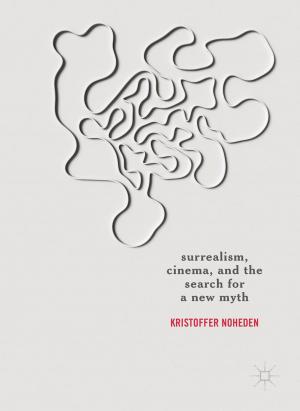White Male Nostalgia in Contemporary North American Literature
Nonfiction, Social & Cultural Studies, Social Science, Gender Studies, Fiction & Literature, Literary Theory & Criticism| Author: | Tim Engles | ISBN: | 9783319904603 |
| Publisher: | Springer International Publishing | Publication: | July 13, 2018 |
| Imprint: | Palgrave Macmillan | Language: | English |
| Author: | Tim Engles |
| ISBN: | 9783319904603 |
| Publisher: | Springer International Publishing |
| Publication: | July 13, 2018 |
| Imprint: | Palgrave Macmillan |
| Language: | English |
White Male Nostalgia in Contemporary North American Literature charts the late twentieth-century development of reactionary emotions commonly felt by resentful, yet often goodhearted white men. Examining an eclectic array of literary case studies in light of recent work in critical whiteness and masculinity studies, history, geography, philosophy and theology, Tim Engles delineates five preliminary forms of white male nostalgia—as dramatized in novels by Sloan Wilson, Richard Wright, Carol Shields, Don DeLillo, Louis Begley and Margaret Atwood—demonstrating how literary fiction can help us understand the inner workings of deluded dominance. These authors write from identities outside the defensive domain of normalized white masculinity, demonstrating via extended interior dramas that although nostalgia is primarily thought of as an emotion felt by individuals, it also works to shore up entrenched collective power.
White Male Nostalgia in Contemporary North American Literature charts the late twentieth-century development of reactionary emotions commonly felt by resentful, yet often goodhearted white men. Examining an eclectic array of literary case studies in light of recent work in critical whiteness and masculinity studies, history, geography, philosophy and theology, Tim Engles delineates five preliminary forms of white male nostalgia—as dramatized in novels by Sloan Wilson, Richard Wright, Carol Shields, Don DeLillo, Louis Begley and Margaret Atwood—demonstrating how literary fiction can help us understand the inner workings of deluded dominance. These authors write from identities outside the defensive domain of normalized white masculinity, demonstrating via extended interior dramas that although nostalgia is primarily thought of as an emotion felt by individuals, it also works to shore up entrenched collective power.















